Reflecting on all we learned during the first year of our Smart Cities Collaborative
After wrapping up the first year of our inaugural Smart Cities Collaborative at the end of 2017, we look back on all the progress cities made and reflect upon how they’re all collectively shaping the future of transportation by working together.
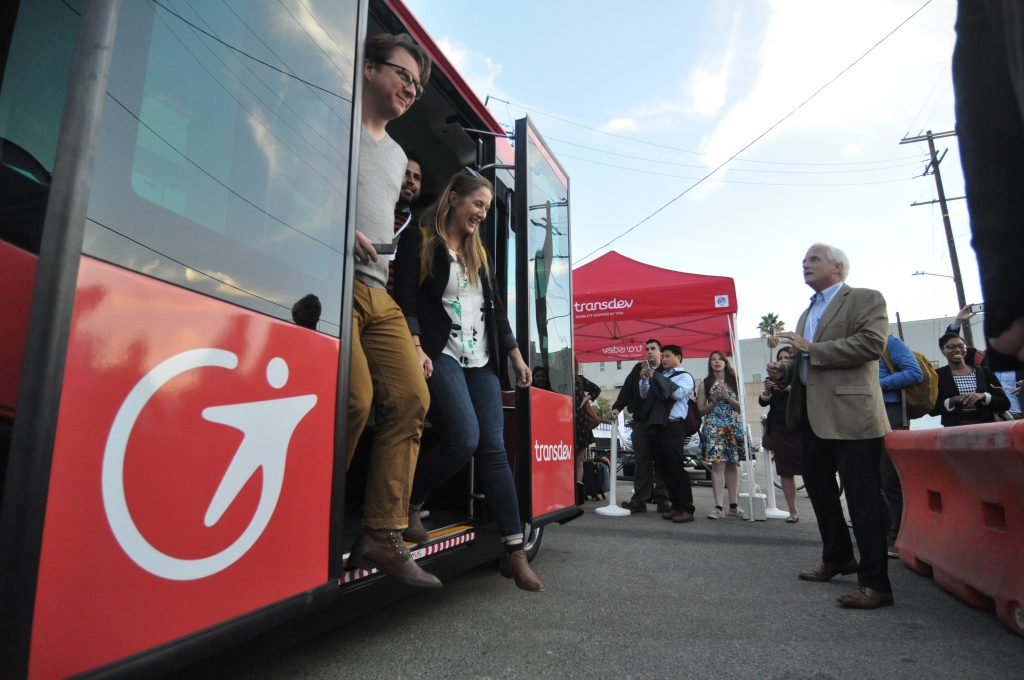
The day after the presidential election in November 2016, a roomful of strangers who collectively guide transportation decisions in cities small and large gathered in Minneapolis to begin unpacking one fundamental question together: “How can we proactively shape our cities through transportation and technology?”
We started that meeting in Minneapolis with a simple goal: help participants build relationships with others from their peer cities, establish the core problem or problems that they’re trying to solve and then start developing an action plan for a specific pilot project. For two days, we heard lively discussions as the participants described their inspiring views on what kind of cities they want be in the future, exactly what they want to accomplish during this yearlong Collaborative, and how technology can help them achieve their goals.
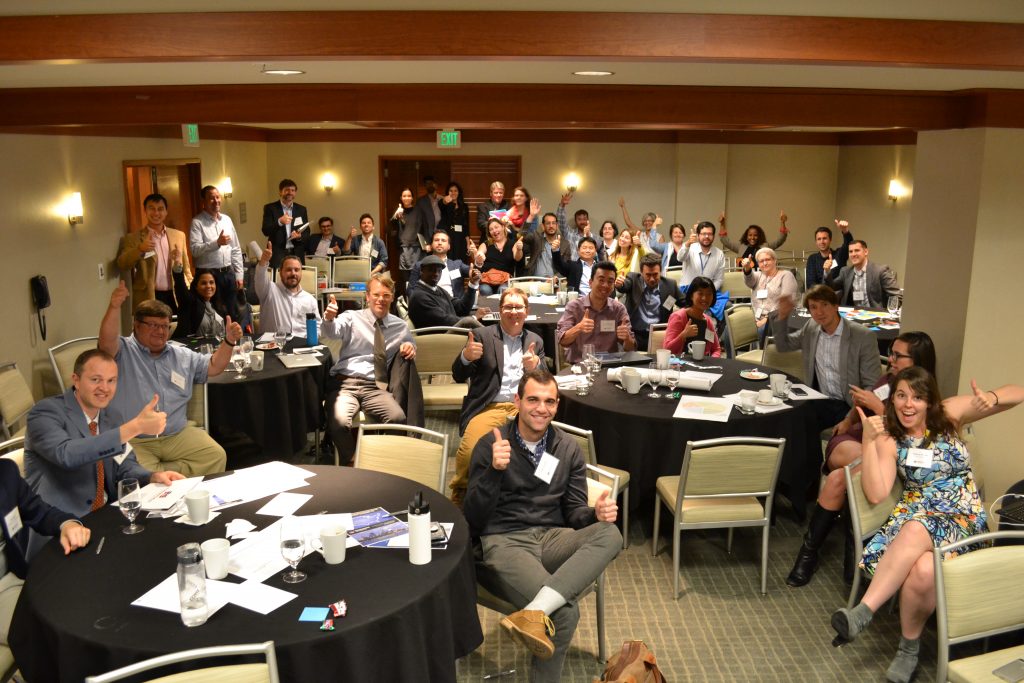
With the answers to those big picture questions firmly in mind and a spirit of collaboration already bearing fruit, we gathered in Washington, DC in early 2017 and spent two days going deep with notable experts on key issues like using technology to improve equity, accessibility and access to economic opportunity; performance measurement; data-sharing between cities and transportation network companies (TNCs like Uber and Lyft); modular contracting and flexible procurement, to name a few.
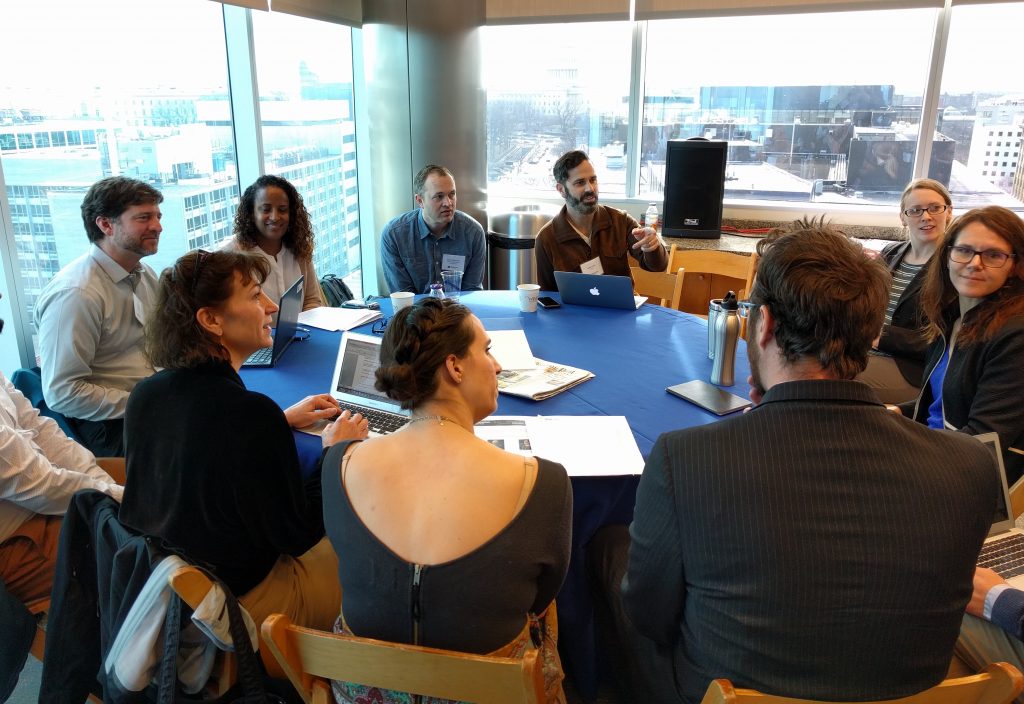
Gabe Klein with CityFi and formerly director of Chicago and DC’s transportation departments, walked a group through his experience with procurement.
During the summer meeting in Miami, we turned the focus back on the cities and devoted a full day to each city sharing presentations on their particular pilot project, the specific outcomes they’re driving towards, and the challenges they’re facing as they design and implement their projects. These challenges included the ongoing struggle to develop productive partnerships with the private sector. In an effort to bridge this gap and serve both sides’ needs, we organized an “industry day” with representatives from leading mobility and data companies like Sidewalk Labs, Uber, Urban Insights, Ford, Via and more to discuss how they could work together to achieve shared outcomes and collaboratively shape the future of transportation.
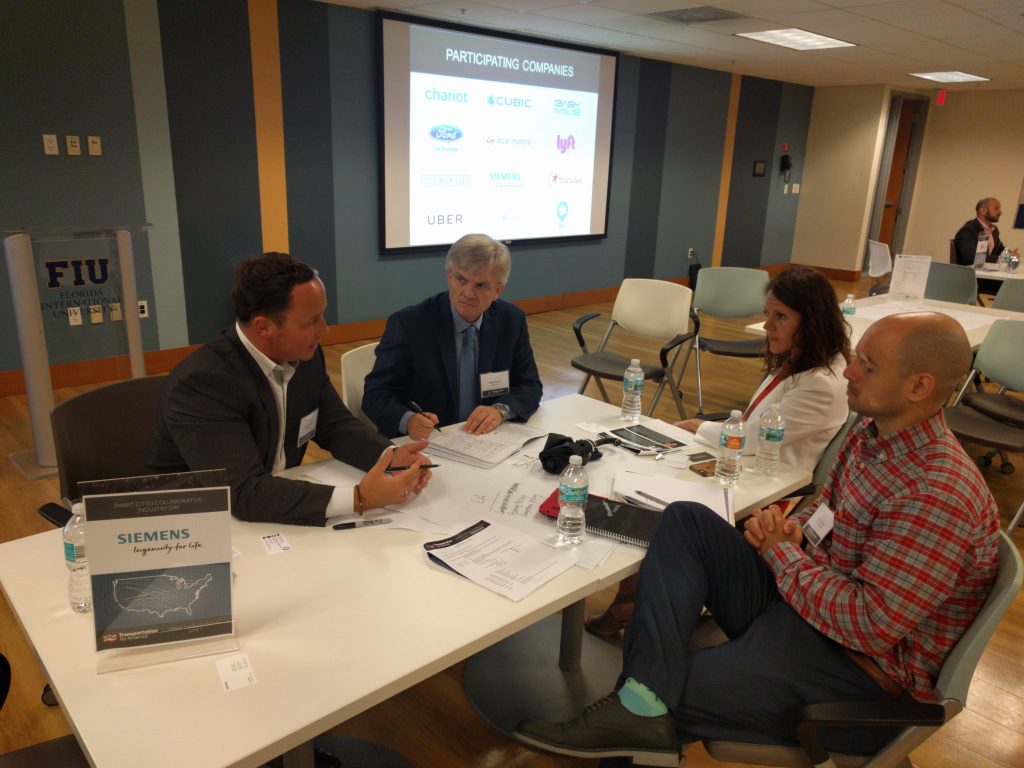
For our final meeting in Los Angeles a year after gathering in Minneapolis, we kicked things off with a discussion of the core principles of a smart city. What makes as city “smart?” How does one define it? We started with the basic premise that “smart” cities are those that guide themselves by a set of core values that inform the foundation of their work and how they approach challenges and opportunities as they come along. We’re putting the final touches on a final set of these values to be shared publicly, so stay tuned here on the blog.
In many cases, cities are also going to need help from their states to make some of their experiments or pilot projects possible, so in preparation for legislative sessions ramping up in the beginning of 2018, we also discussed a specific set of policy proposals that could or should be developed at the state level to enable these cities to harness new and emerging technologies in service of their residents.
Reflecting on the first year
We capped off the last day in L.A. with a small panel discussion where members spent some time reflecting back on all they’d learned since that November day in Minneapolis. And the biggest takeaway across the board, from nearly every participant, was realizing the collective power they have to shape the future — if they work together.
“The biggest a-ha moment was discovering that cities want to collaborate,” said Karla Taylor with the City of Austin. “The USDOT Smart City Challenge felt like warfare and zero sum. But here, we’ve been able to share our knowledge and it has really opened up a whole new realm for our cities.”
“We are all facing the same challenges and we are all in the same boat,” said Adiam Emery, an engineer with the City of Seattle. “The fact that we’re all trying the same thing and leveraging the others expertise is really a good thing.”
When cities cooperate and collaborate with one another, they’re able to learn and fail and iterate faster than they could ever do on their own.
“This is going to change everything about how we live and work. And no one quite knows what that impact will be,” said San Jose’s Shireen Santosham during the D.C. meeting. “It’s a pretty big revolution and having this brain trust of cities get together with experts really adds a tremendous amount of value as we embark on this. And frankly, we’re all going to be stronger together and benefit from the thinking if we work together — rather than all trying the same things and not sharing.”
Hear more from our initial cohort in this short wrap-up video.
“They want so much more from our streets”
Over the last year, we’ve been struck by watching how these local leaders have begun to crystalize a vision of the kind of city they want to be, determine how best technology can get them there and begin to implement their vision. And we’ve seen projects unfold in some of the cities, like the projects in Centennial and Lone Tree, Colorado that we’ve profiled here, and LA’s microtransit pilot that’s coming soon, for example.
As technology changes rapidly and affects how so many people get around in our cities, it’s truly a decisive moment.
As Seleta Reynolds, the LADOT director, told all of us at the close of the LA meeting, “we have to get people excited and inspired about a new vision. They want so much more from our streets than just moving cars back and forth. This moment allows us to be creative and reach other people who don’t normally care about transportation.”
The inaugural Collaborative helped make a tangible difference in the future of these 16 cities, and we’re eager to help others do the same in 2018.
The inaugural Smart Cities Collaborative was funded by Sidewalk Labs.





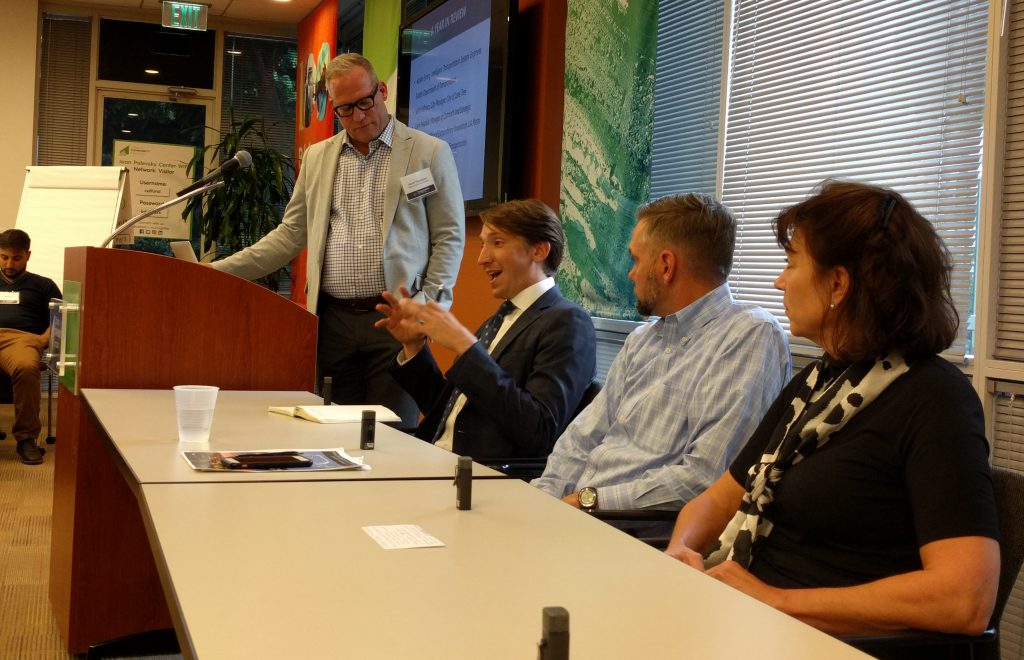















1 Comment